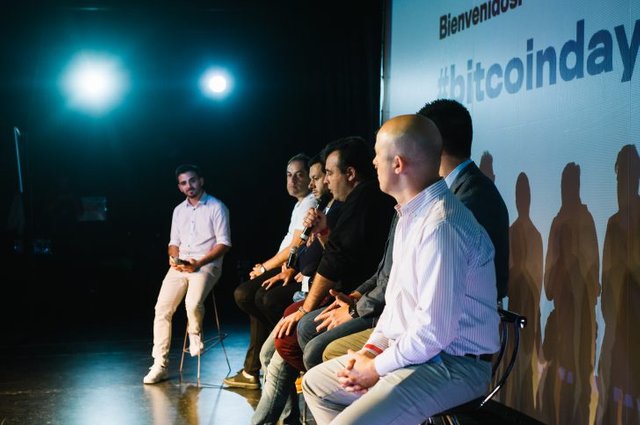'Bitcoin Day' Proves Argentina's Crypto Love Is Alive and Well
'Bitcoin Day' Proves Argentina's Crypto Love Is Alive and Well FEATURE Belen Marty Apr 10, 2018 at 02:00 UTC
Bitcoin may not yet have "conquered" Argentina, but it's certainly making in-roads.
That much was obvious last week at "Bitcoin Day" in Buenos Aires, where 500 attendees took part in an event aimed at serving a growing demand for information on the technology. Held in the heart of the city's Almagro neighborhood, the conference served a reminder of how the country is still the leader in regional adoption, even if other developments in Latin America (like Colombia's possible petro cryptocurrency) may have stolen the spotlight of late.
For example, Chile's Guillermo Torrealba, CEO of the cryptocurrency services firm Buda, contrasted his efforts to achieve banking support in Argentina with experiences elsewhere.
"There are even banks here that have executives that are exclusively dedicated to cryptocurrency companies," Torrealba said. Compared with his home country, the situation, he said, is night and day.
"In Chile last week, all commercial banks have decided to close the accounts to all the cryptocurrency companies at the same time. They killed the industry," he told CoinDesk.
Still, that's not to say there isn't optimism that other countries will follow in Argentina's progressive footsteps.
Torrealba expects government or judicial intervention to ultimately end the blockade, asserting that countries like Peru are already pursuing a different strategy, seeking to observe and learn.
"We believe that it is not long before the traditional financial industry will come looking for us in order to begin to use our infrastructure," he said.
But in Argentina, that might already be happening.
Gonzalo Blousson, CEO of digital notary startup Signatura, for one, acknowledged progress is being made. Already, Argentina is registering official bulletins on the blockchain, a development he credits to a vibrant local community that has been evangelizing for the tech for years.
He told CoinDesk:
"We used to call the companies to tell them what blockchain is about. Today they call us to improve their processes."
The new enemy

That said, there was a significant amount of interest in another question - if and when the bitcoin price (down more than 60 percent on the year) would begin to rise again.
For this, a talk by Carlos Maslaton, head of treasury at Xapo, satisfied, with dialogue on how financial entities are wary of bitcoin because it "generates competition" in the financial markets.
But he notably went on to urge banks to "open their minds a little," suggesting that the crowd in attendance was reason enough that bitcoin and cryptocurrencies are, if nothing else, a new market for their services. (Maslaton said he wasn't expecting such a strong turnout after the decrease of bitcoin price.)
Still, if Maslaton doesn't see banks as the enemy, he believes bitcoin still has regional threats.
Asked by a Venezuelan about his opinion on the petro cryptocurrency, he went so far as to call it a "fraud."
"No currency of these characteristics can be issued by a government. Precisely the idea of cryptocurrencies is that it they are not to be issued by a government," he said, adding:
"In the hands of Maduro and the criminals who run Venezuela, what else can I say..."
Images via Bitcoin Day organizers
The leader in blockchain news, CoinDesk is a media outlet that strives for the highest journalistic standards and abides by a strict set of editorial policies. CoinDesk is an independent operating subsidiary of Digital Currency Group, which invests in cryptocurrencies and blockchain startups.
Posted from my blog with SteemPress : http://bitcoin-bug.com/2018/04/10/bitcoin-day-proves-argentinas-crypto-love-is-alive-and-well/